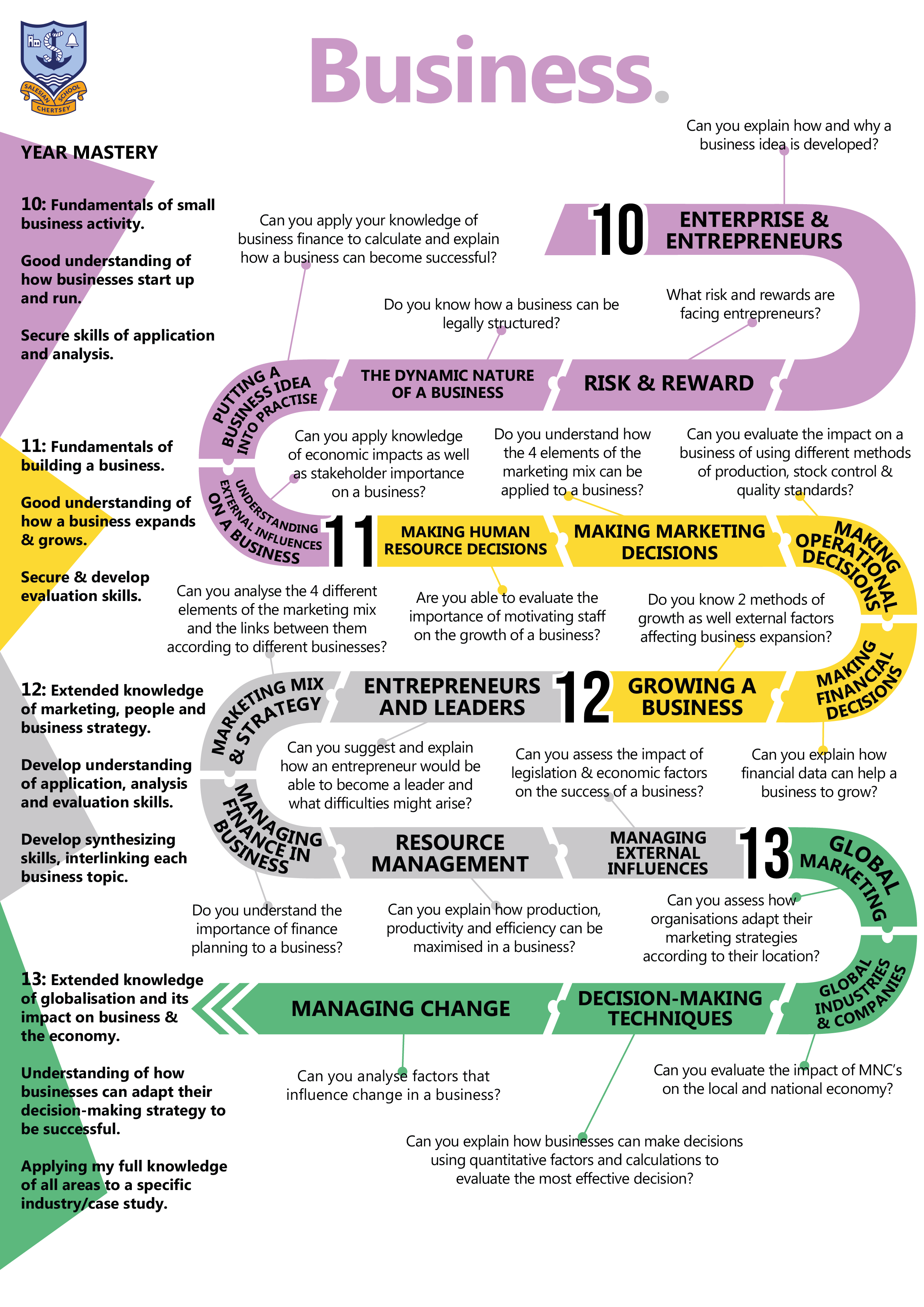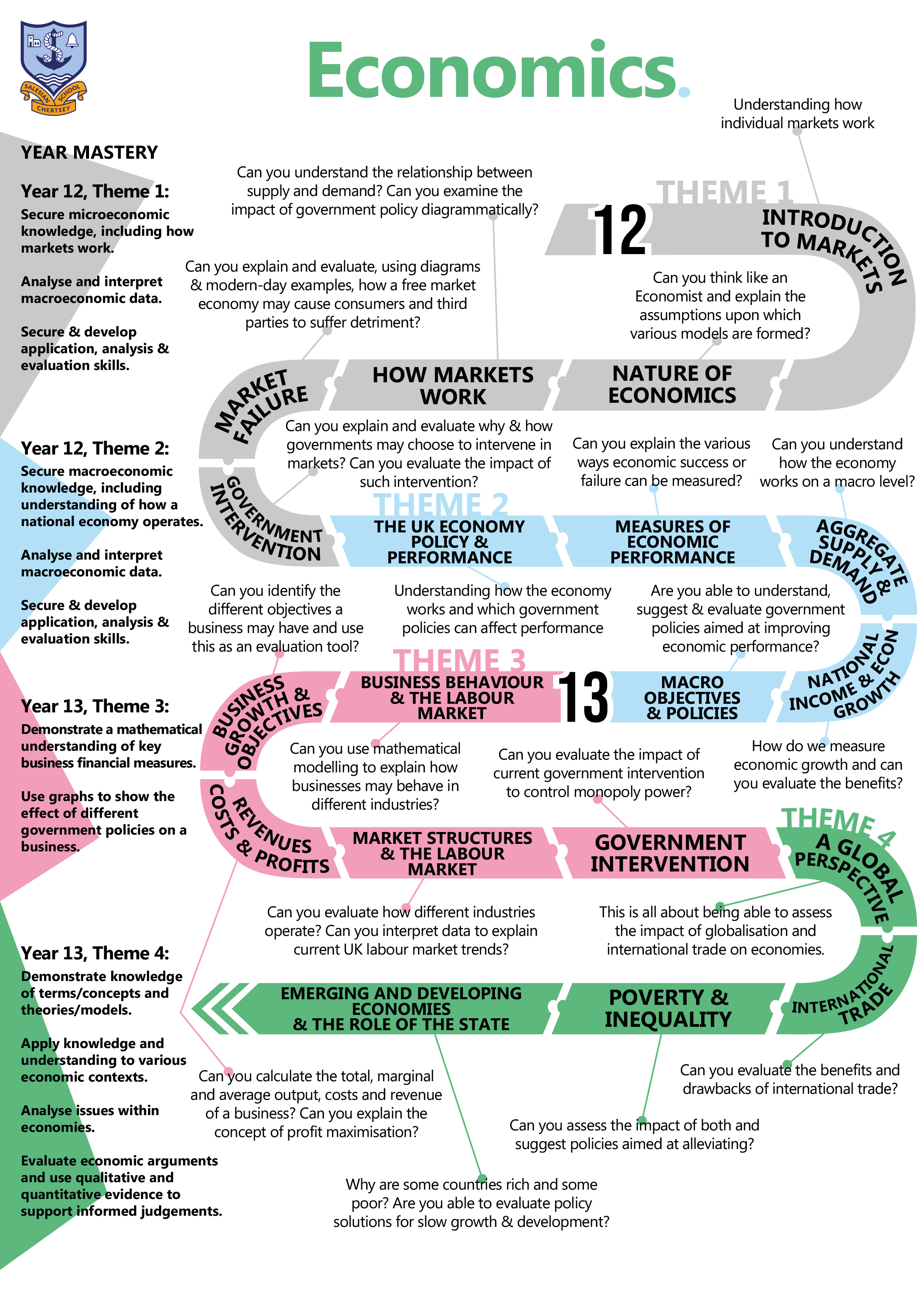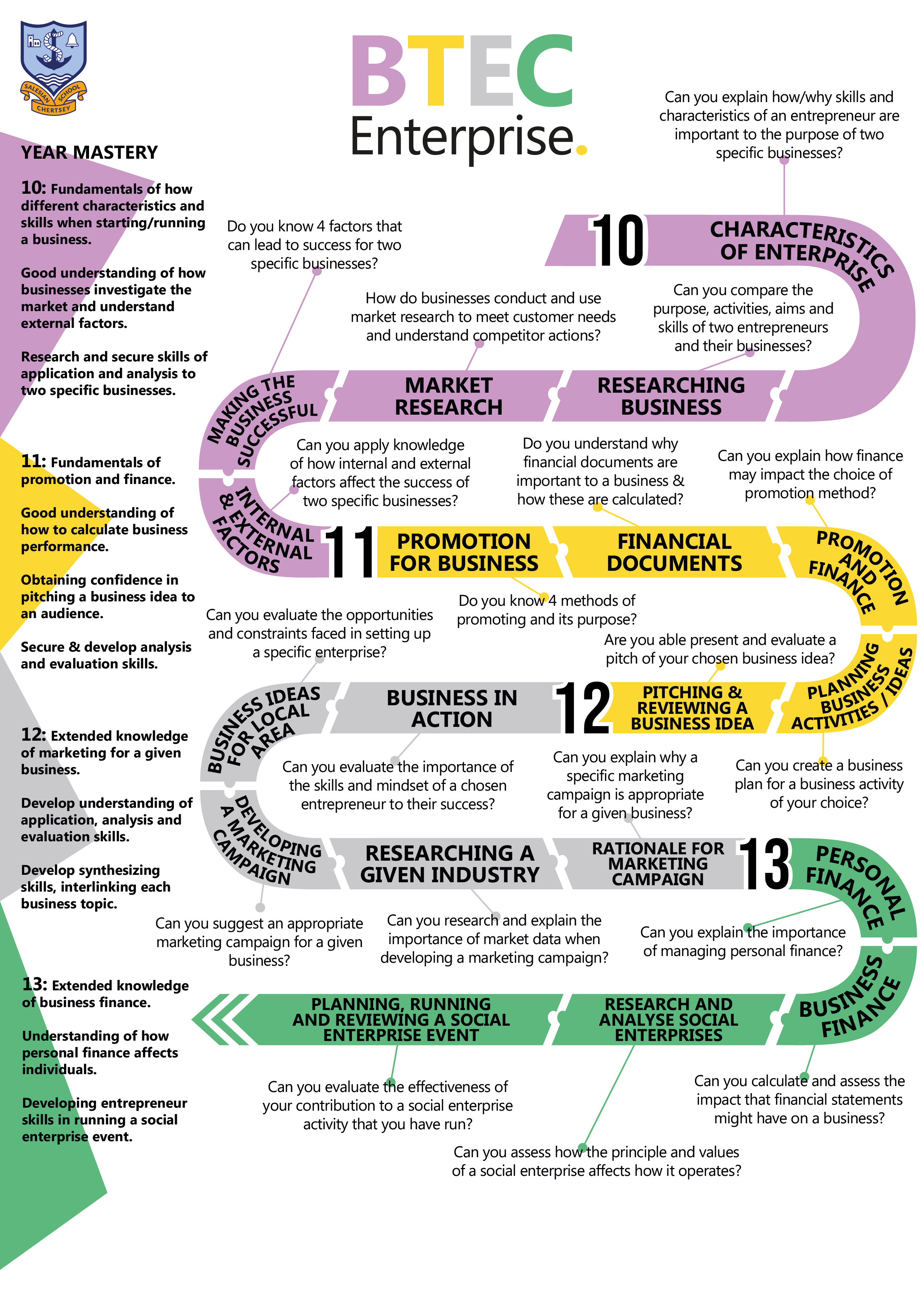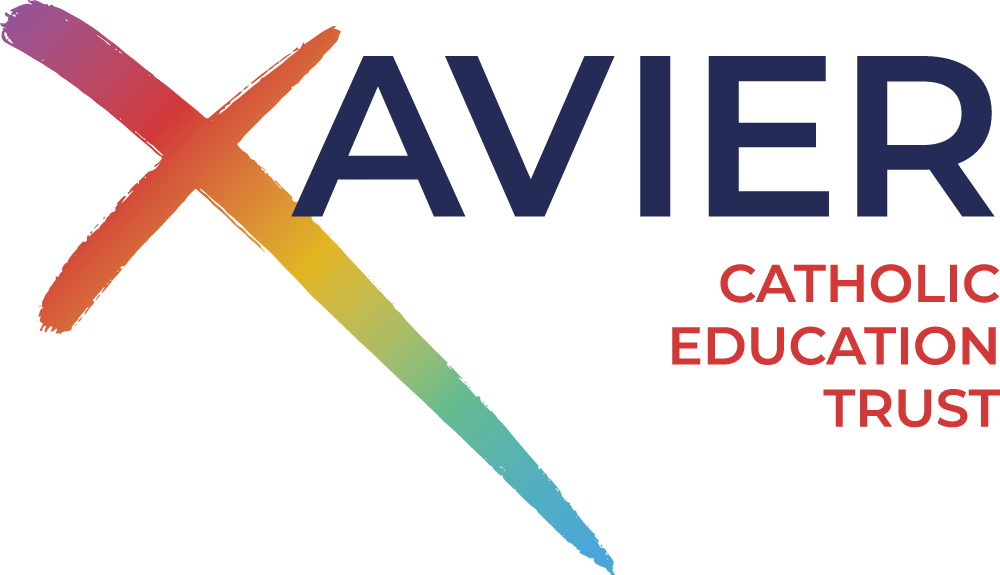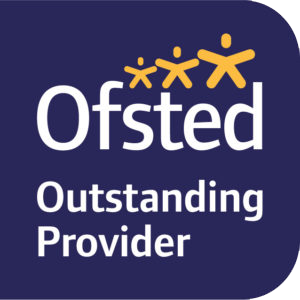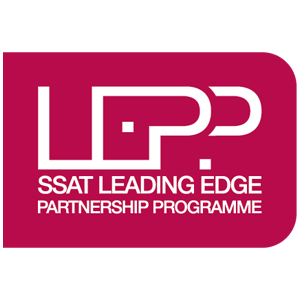At Key Stage 4, the Business & Economics department offers students the opportunity to study GCSE Business or the Enterprise BTEC. Over the two years, students are exposed to a broad range of topics affecting small businesses and multinational corporations. Examples of these topics include marketing, finance, production and human resources. The courses offer students the opportunity to develop a range of skills such as the ability to research, develop written analysis, interpret data and evaluate before reaching a well-informed judgement. Throughout the curriculum, students are exposed to current issues facing businesses in the UK and beyond, causing them to have a greater awareness of the opportunities and threats posed by the current economic climate.
Business & Economics
Key Stages 4 & 5 Curriculum
Business:
At Key Stage 5, the Business & Economics department offers students the opportunity to study A Level Business or the Enterprise & Entrepreneurship BTEC. Students learn a broad range of topics in relation to how a variety of businesses operate, including in relation to marketing and people, financial planning, external influences, production, decisions & strategy and managing change. The courses require students to write well developed, coherent arguments which are applied to the context of the business in question, while using key terminology. Students have regular exposure to data so that they are able to build skills in calculation and data interpretation. Students are encouraged to read around the subject so that they can develop a sound understanding of current issues facing national and international businesses alike.
Economics:
At Key Stage 5, the Business & Economics department offers students the opportunity to study A Level Economics. Students learn from a comprehensive curriculum offering of macro- and microeconomic topics and encouraged to draw links between these different sides of the course. The course requires students to develop skills of analysis and evaluation, using economic vocabulary and to using quantitative skills accurately and confidently to interpret and calculate data. Over the course of the two years, students will develop an understanding that economics is a social science that is open to interpretation and argument – they should be able to articulate and write about differing ideological viewpoints to support a well- informed judgement. Students are encouraged to read around the subject so that they may appreciate the many challenges that the world faces in the 21st century, especially in relation to the environment, sustainability, inequality, and the nature of work. Students are offered the opportunity to provide creative suggestions as to how governments may intervene in macro and micro economics to provide solutions to these challenges.
